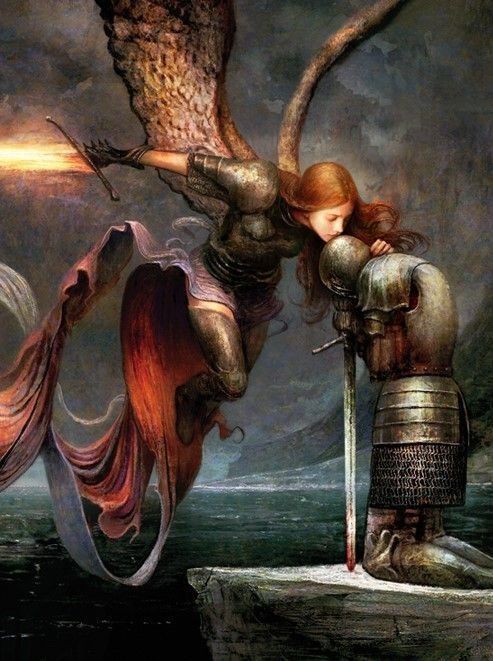
Parallel to the "I don't like fantasy in my sci-fi" whine is the "I don't like religion in (X)" whine.
Contrary to what (Post-)Modernist Westerners wish was true, religion is a primary motivator for action in the pre-Modern world.
Yes, I said "religion" and not "Christianity"- and I mean exactly that. Religion matters greatly to the pre-Modern mind, be it at a tribal or a civilized level, and this has been known in detail for generations- but, go figure, memory-holed because of WrongThink.

Click on the image to buy a copy.
For those wondering why I point this out, it's because of two things: (1) religion is visceral in Advanced Dungeons & Dragons 1st Edition in a manner that real life is not due to the way that gods empower Clerics/Druids/others-like-them; (2) pre-Christian religion does not operate in the manner that Christianity does and thus will be unfamiliar to most people.
Yes, this means that Most People Do Religion Wrong.
It is one thing for a character to be motivated by very basic things like Not Be Poor. Even fame and fortune only go so far because they have no answer for "To what end?" Religion provides crystal-clear answers for what that character is what he is, and reason to do what he does- including those so inclined to defy their religion because it is all that they know.
And, as we are seeing now in real life, everyone has a religion whether they know it or not. Even Conan, no man to bend the knee to gods, lives according to the myths of Crom that he learned as a boy in Cimmeria despite lacking any obvious displays of religiosity because his mythology doesn't have room for it.
"So, smart guy, what's a religion then?"
To quote author Brian Niemeier:
First, let’s define our terms. To qualify as a religion, a group must have three elements:
- Cult: a consistent body of rituals for public worship
- Code: a set of moral rules
- Creed: a canon of shared myths that defines a shared identity
I’ll add a further criterion introduced by reader D.J. Schreffler. A religion offers adherents explanations for their past, present, and future.
- The origin story–this is part of the creed.
- Ritual laws for the here and now–see cult and creed above.
- Eschatology–the final chapter of the creed.
Now do you see why religion matters? These are the answers to questions that motivate behavior, in conformity thereto or defiance thereof, and Fustel shows how this was done for real in Antiquity- a model easily used in AD&D1e campaigns, especially with demi-humans due to their small populations and the necessity for social cohesion for survival against the far more numermous monsters arrayed against them.
Mythology is a big deal, and gamers have slept on it far too long because they don't get what it is or how it works. Now enough of us have that knowledge and are able to articulate it in terms other gamers can comprehend- and, would you look at that, this fits how Gygax envisioned religion to work in the game. It's like he knew a thing or two.
You don't have to write massive dissertations. Simple, short answers that fulfill the above criteria are sufficient; you can do executive summaries and get by just fine.
Maybe I should bother to do this for our demi-humans--Dwarves, Elves, Gnomes, and Halflings at least--just to show people how simple and easy this can be done.
"How does that help me?"
People act on their beliefs. That includes the myths of a culture, and therefore of the people who make up that culture, because that mythology tells them what life is and how it works. You want to know why someone does something that doesn't seem to make sense? Dig into what they believe and why they believe it. Odds are good that you'll get your answer.






That blue-skinned Imperial admiral was on to something.
This fact of life is directly applicable to proper RPG gameplay.
It is one's beliefs that drive what is and is not acceptable to do. A faction's Objectives, Win, and Loss conditions for a given campaign will be framed by them. All of the talk of morale, economics, logistics, etc. is secondary to those beliefs because those material factors are but the means to the end--to the answer given when asked "To what end?"--and this is confirmed generation upon generation by the testimonies of those who do it for real.
This applies at the personal scale, as should be obvious to the reader by their own experiences, and therefore applies to the factions and adventurers within a campaign alike.
No comments:
Post a Comment
Anonymous comments are banned. Pick a name, and "Unknown" (et. al.) doesn't count.